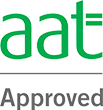Home - FAQ
FAQ Page
We covered this in our ‘What Is Accounting?’ blog but essentially, the process of accounting involves recording, measuring and processing financial information about an entire business with the goal of sharing that information with shareholders or key stakeholders within the business. Accountancy involves keeping balance sheets, financial statements and other documents which allows a business – from sole traders to huge corporations – to see the state of the financials which, ultimately, informs their decision-making.
Accounting is integral to businesses as there needs to be a way of tracking finances and the incomings and outgoings of the accounts. This is relevant at all levels of the business as the finances will affect everything from staff wages to business investment and if there isn’t enough money to fund these, changes will have to be made. Without accounting, the financial situation of a business would not be known and would be impossible to make decisions from a financial point of view. Having a clear understanding of your accounts as a business allows you to make the correct actions to maintain good financial standing and make moves into growing your business and increasing wealth.
As chartered accountants, we offer more than just an accounting service. While understanding your finances is important, we believe that with our expert advice, we can help grow your business. This is in addition to our specialist accountancy services which include Year End Accounts & Reporting, Corporation Tax Compliance, Self-Assessment Tax Returns, VAT Returns, Payroll, Bookkeeping, Transaction Services and Cloud Accounting. From ensuring your business correctly complies with tax to effectively managing your payroll, we’re able to help support your business’s inner financial workings.
An audit can either be internal or external and is essentially a process by which a business, or a trusted professional from outside of the company, assess and examines all the financial elements of a business. Regardless of whether the finances are big, small or profit-orientated, it is all audited. The main goal of an audit is to check that the information presented in the final document reflects the position of the company. For more on audits and how we can help with this process, be sure to check out our dedicated page.
Audits can be carried out for a number of reasons and provide a range of different benefits. By requesting an audit, a business has the opportunity to reassure existing shareholders that their finances are ‘true and fair’ and attract new shareholders. If a business is looking to expand and grow through investors, an audit is essential to ensuring that everything is in order beforehand. While these are benefits of an audit, they may not be the sole reason a business would request one, as audits are also a good opportunity to regroup, essentially, from a financial point of view. By conducting an audit, a business is able to review its finances and improve its dealings in order to grow. For example, if there are any issues with accounting processes or large losses are being made then an audit is a perfect way to identify these issues and fix them before the business is potentially harmed further.
Alternatively, an external audit is required by companies that meet certain criteria and the business must comply with the process to receive the correct certification. While an internal auditor will work with your business and help you with your finances during the auditing process, an external auditor will be there solely to review your finances. Often an external audit is required by law, such as the case with a statutory audit which occurs when a business is classed as part of a group. There are some factors that make a business exempt from these types of audits such as if they are a charity or if they are turning over less than a set amount, otherwise they will have to comply with the audit.
The aforementioned internal and external audits are just two types of audit, while there is another in the form of a tax investigation. These are an exploration into a company’s record to ensure their tax payments are accurately documented. The investigation will determine that the correct amount of tax has been paid in relation to earnings and other factors. Any attempt at fraud or tax avoidance can be identified via this method of auditing. Often, if this audit is required to take place, it’s as a result of HMRC being suspicious of your business’s activity or have received information that your financial dealings aren’t all above board. The term guilty by association is also relevant as a business can be subject to a tax investigation if they have had dealings with a person or company who themselves have found to have had errors with their tax payments or financial records.
Once the audit has been conducted there will be one of three outcomes. If all of the tax records are in order, there will be no changes or additional payments required from the taxpayer. If there are issues, HMRC will request additional funds from the taxpayer and assuming they agree, the next steps to repay this will be taken. The other option is that there are issues with the tax repayments but the taxpayer refuses to pay additional tax or there is a reason why these errors have occurred, in which case they can appeal to resolve the issue.
In accounting, ‘Capital’ is a term that refers to any financial resources or assets (tangible assets or otherwise) that are owned by a business which helps them progress and increase revenue. Different from just ‘money’, ‘Capital’ is more encompassing and includes things such as investments, stocks and assets that are beneficial to the company. Capital forms the basis of how a business generates money, in short.
Capital is essentially money a business has before it’s categorised as money and should the assets be sold, this ‘capital’ will then be attributed to a businesses finances. For example, if a business has invested in shares, the value of this investment will be reflected, but it’s not money the business is able to use unless the shares are sold. Capital is the best way to account for the potential money a business could have and tracking the relevant value of the assets as this can fluctuate.
Other examples of capital are assets a business owns, such as company cars, machinery and other equipment. While these won’t be sold in the same way a share would to reap a return on investment, they still represent a portion of the company’s wealth that is different from actual money in their accounts. Raw materials, however, aren’t considered capital and would be accounted for under a different section of reports.
Capital is extremely important in accounting as it allows you to track both your capital gains and your capital losses. Capital gains occur when your investments are worth more than the original amount you invested, meaning you sell the asset at a profit. However, it is worth noting that when you do this, these can be taxed which is known as capital gains tax. The same applies if your investment loses value, then the difference between the amount the asset is now worth and the amount you originally invested is the capital loss amount.
Financial accounting is a specific branch of accounting which focuses on the transactions that a business may make over a set period. A financial accountants job is to retain sufficient records of these transactions to ensure a business knows where its money is and where it has gone.
This is an extremely important part of accounting as it allows a business to get an accurate understanding of their cash flow, which allows them to predict their future financial standing. Viewing transactions over a set period of time allows a business to forecast its future financial situation and adapt its approach should it need to. For example, if large transactions have been made and disrupted a business’s cash flow, by keeping records of this the business is able to make sure it doesn’t happen again or adjust accordingly to factor these in.
They also represent a company’s performance over a set period of time and depending on how regularly these are reviewed, the records can be used to manage performance. For example, if these records of transactions are viewed every quarter, they will reflect how well the business has performed within those set months and can be compared to previous months to identify whether there has been an improvement. While accounting in general covers a lot of practices, financial accounting is primarily concerned with the following statements:
- The income statement
- The balance sheet
- The cash flow statement
- Statement of retained earnings
VAT affects businesses by forcing them to increase the price of their goods and services to offset the 20% VAT rate that is currently in force. You can read more about VAT in our blog: ‘What Is VAT And How Does It Affect My Business?’.
Businesses with a turnover of over £85k must be VAT registered but any business with a turnover of less than that amount isn’t required by law to be VAT registered, however, it sometimes it can be beneficial to businesses under the threshold as it allows them to claim back VAT. If a business is VAT registered, it is required to charge an additional 20% on all sales but this figure will be deducted once the invoice is paid.
When a business is VAT registered, it must also pay a VAT return to HMRC every 3 months. A large part of VAT will go to the suppliers of the business while the remaining smaller amount will go to HMRC. If a business is not VAT registered, they are unable to claim VAT and will be left having to pay a large amount of VAT. Being VAT registered is favourable to business, not just because they are able to claim back VAT but also due to the much simpler process. With VAT registration a business can collate all of the transactions which have occurred and submit VAT returns to show the amounts paid, whereas a business would have to transfer the collected VAT to HMRC every time a transaction occurs if they are not VAT registered.
VAT is paid to HMRC every 3 months but before this happens, a business must take away any VAT that is for their suppliers from the total amount. There is the option for businesses to pay their VAT quarterly, which means the business will have to pay VAT one month and seven days after the end of the VAT period. For annual accounting repayments, the system is different and will only receive one repayment at the end of the year once the VAT return is submitted. It’s important these payments are made on time as surcharges may apply if it’s late.
‘Journal’ refers to the act of keeping records, one of the most fundamental aspects of accounting. Transactions by a business are kept in an accounting journal which will tally up a company’s debit and credit balances. A typical journal will contain a series of recordings to give as detailed a picture as possible about the business’s financial affairs.
These accounting journals are used to record dates transactions, which accounts are involved and the amounts which were transferred, these records are often then noted in a general ledger. The key purpose is for the journal to act as a central point for all this data to be collected. If a transaction is made it is noted in the journal, just as any expenses which affect multiple accounts will be noted in the journal. Without efficient journal accounting, key transactions can be missed and the effect they may have on other accounts could go unnoticed, leading to more severe issues.
Journals will also be reviewed as part of the auditing process as they are a vital part of a businesses overall accounts and contribute directly to the general ledger. Sales, expenses, movements of cash, inventory and debt are all recorded in the journal, ideally as soon as possible, to ensure the records are up to date and relevant.
Double-entry bookkeeping is also a very common form of accounting and directly affects journals as every transaction consists of an exchange between two accounts. This will reflect the transfer of money between the accounts. For example, if a business purchases new assets through one account, one entry will be made deducting the cost, while in the assets account, the same amount will be added to show the transfer of value between money into assets.
Corporation tax is payable on all taxable profits of any company that resides in the UK. It is calculated and paid annually based on what is known as a corporation tax accounting period, which is the same as your financial year. It looks at your net revenue (the total amount left within the company after deducting costs/expenses) and then the corporation tax percentage is applied to that.
Each year a company must file a corporation tax return with HMRC in addition to an in-depth list of the company’s various accounts. Corporation tax must be paid to the HMRC no later than nine months and one day after the official end of the financial year. The date which is classed as the end of the financial year will differ between companies and depend on various factors such as the date it was formed.
As of April 2020, the corporate tax rate is 19%. However, in 2023, the rate is set to be increased to 25%. The 19% rate will continue to apply to companies with profits of not more than £50,000, with marginal relief for profits of up to £250,000.
For small and large businesses the calculation remains the same. Simply divide your profit by 100 and times that number by 19 to work out how much you’ll pay. If a business has £250,000 profit then their corporation tax would be £47,500. The equation being: 250,000/100 = 2500 which when times by 19 gives you 47,500. With the tax set to be increased to 25% in 2023, the same equation will still apply however the profit which has been divided by 100 will need to be multiplied by 25 to work out the amount to be paid.
Without accounting, you’re not going to have any idea how your business is doing. A lack of thorough accounting records will soon see your business fail because you won’t be able to make future business plans or understand how your company is performing in the here and now. Accounting is fundamental to a business and to ensure it brings real value to your business, you should get in touch with Williamson & Croft.
Just as accounting is vital to preventing the failure of a business, it’s also crucial to success as it allows businesses to gain an accurate understanding of their financial standing and identify potential avenues for growth. For example, if a company’s turnover has grown very little over many years, accounts will reflect exactly why growth has been minimal and may outline extensive costs which could be reduced. Similarly, this will allow the company to identify which sectors could be improved upon, grown or streamlined to help the company perform better.
Relevant accounts records are also extremely important if the business wishes to receive investment or sell shares in the company. Investors likely won’t invest in a company that isn’t transparent with its financial statements as this will raise suspicions that there is an issue. There are many services which we offer as chartered accountants and if you wish to explore this avenue of reviewing your accounts to present to potential investors, an audit is the best way to do this. Requesting an audit is the best way to show potential investors that your company’s finances are. In-depth audits and an exploration of your company’s accounts allow you to locate any potential gaps in processes where either a mistake has been made or potentially fraudulent activity has occurred.
Without a clear understanding of your businesses finances, you could fail to comply with tax payments or internal transactions such as paying employees. By failing to pay taxes your business is liable to additional cost and potential legal action if these are not paid on time. Just as your employees have the right to take legal action if they are not paid correctly or on time either. You will also need to know what your business is capable of from a financial point of view, for example, does your business have the funds to carry out a large investment or employ new staff? The only way you’ll know whether this is possible or what the potential effects of executing this will be is if you know the exact state of your accounts.
Sometimes referred to as the ‘Balance Sheet Equation’. This equation represents the relationship between a business’s assets and liabilities. The formula can be expressed as Assets = Liabilities + Equity and helps businesses and accountants determine the value of their total assets.
In simple terms, the equation refers to the double-entry accounting system, which incorporates both the liabilities and shareholder equity. Using this specific accounting equation allows business to ensure that their balance sheet is in fact balanced and each entry as a corresponding, equal entry. The most important parts of the equation are primarily made up of the assets and liabilities, while the third part is shareholders’ equity. These three factors each make up the balance sheet and provide accurate data as to the state of a business’s finances. Each factor will feed into another, with corresponding data being entered depending on the original entry.
Our expert team at Williamson & Croft have helped small businesses across a number of sectors with their accounting process. But, if you’re in need of something quickly we recommended you start tracking your expenses, develop a bookkeeping system, set up a payroll system and establish a sales tax procedure. These are just a few of the fundamental things you need to do to ensure the smooth running of a business. If you need any more advice or want an accounting firm to step in and help, be sure to get in touch with Williamson & Croft today.
It’s important that SME’s carry out sufficient accounting practices as this will be crucial to ensuring the business is making enough money to stay afloat. With smaller businesses, it’s likely that their margin between profit and making a loss is much smaller than a larger company and the period in which they can operate at a loss will be much shorter. This makes understanding your accounts and how various transactions will affect your financial standing all the more important.
Similarly, if a small business is looking to expand, the only way they can do so is by looking into their accounts and identifying exactly which areas they could potentially improve or cut costs to help with growth. This could include factors such as payroll, as the business may have too many employees for the workload and by reducing the number of workers, they would have a much healthier profit margin. However, as is often the case with businesses looking to grow, they may identify their staff as an area they can increase and take on more work as a result. This is also transferable into other costs such as work premises or equipment, often high costing offices can limit a company’s growth. Finding cost-effective workspaces and efficiently re-investing earnings into the business is the best way to find growth opportunities.
As a small business, if you’re just getting started and need help with set up and establishing an effective accounting method, our experts will be able to give you excellent advice based on their extensive experience in the industry. We’re able to implement efficient accounting systems which are suited to the way your business works, aiding the way you operate as a result.
Tax records are important to keep because they prove to HMRC that you are a legitimate business with a proper tax set-up in place. You should keep your tax records at least 5 years after the submission deadline of the relevant tax year. However, with the advent of cloud-based accounting, we would advise you to keep tax records from even further back to cover yourself in case HMRC wish to see them.
The cloud-based accounting service which we offer is essentially a way of being able to access every piece of relevant information and documentation relating to your business, which is something we believe is crucial in the modern-day and age. Especially in the case of tax records, which are very important documents and could be requested by HMRC anytime. While the recommended time to keep these records is 5 years, you’re further covering yourself by holding onto them for longer and by storing them on a cloud-based accounting system you won’t have to ever worry over their whereabouts.
The tax year ends in April. The tax year starts on 5th April and will run until 6th April the following year. If your business hasn’t filed a tax return before this date, you will receive a notification advising you to pay the return for the previous tax year as soon as possible. If tax returns aren’t paid or are paid later than the allotted time, there is potential for additional charges to be added on or legal action to be taken. For those who are self-employed, you must register with the HMRC for this.
Standing for the ‘Construction Industry Scheme Tax’, CIS deducts money from subcontractors and gives it straight to HMRC. These deductions will then count as future payments to the aforementioned subcontractor’s tax and national insurance. It was created to prevent fraud and ensures HMRC gets the full amount of tax. If you are self-employed, the contractor will be instructed to withhold tax on their payments to you, these will be at rates of either 30% if you are registered or 20% if you aren’t.
We hope you found the answer you were looking for. If you’re looking for a new accountancy firm, get in touch with Williamson & Croft today.
We’re always on hand to help businesses in Manchester, Liverpool, the surrounding areas of Wigan, St Helens, Warrington and the wider North West with their accountancy and tax needs. Our services range from the usual tax and accountancy services to more niche solutions like SRA Audits, general auditing, R&D Tax Credits as well as advisory services that can help propel your business forward.
We work with a range of industries, from the property, construction and professional services sectors to the digital & creative, retail & eCommerce and technology & software.
Contact us today by phone on 0161 3990121 or online and we’ll take the necessary time to understand your business before finding a bespoke accounting package that will help your business achieve its financial goals. From improving cash flow and financial reporting to profit and loss, we can do all this and more at Williamson & Croft.









